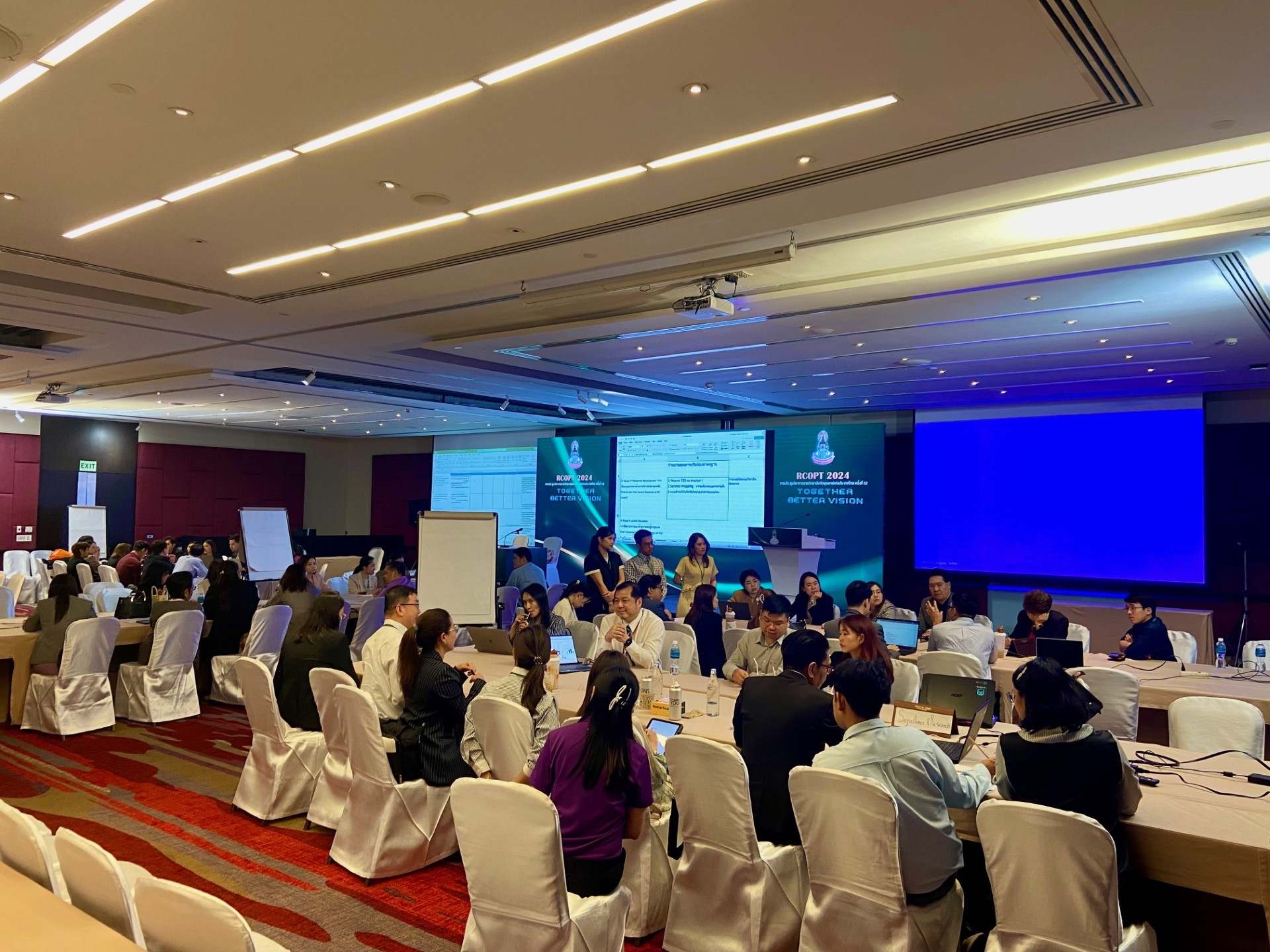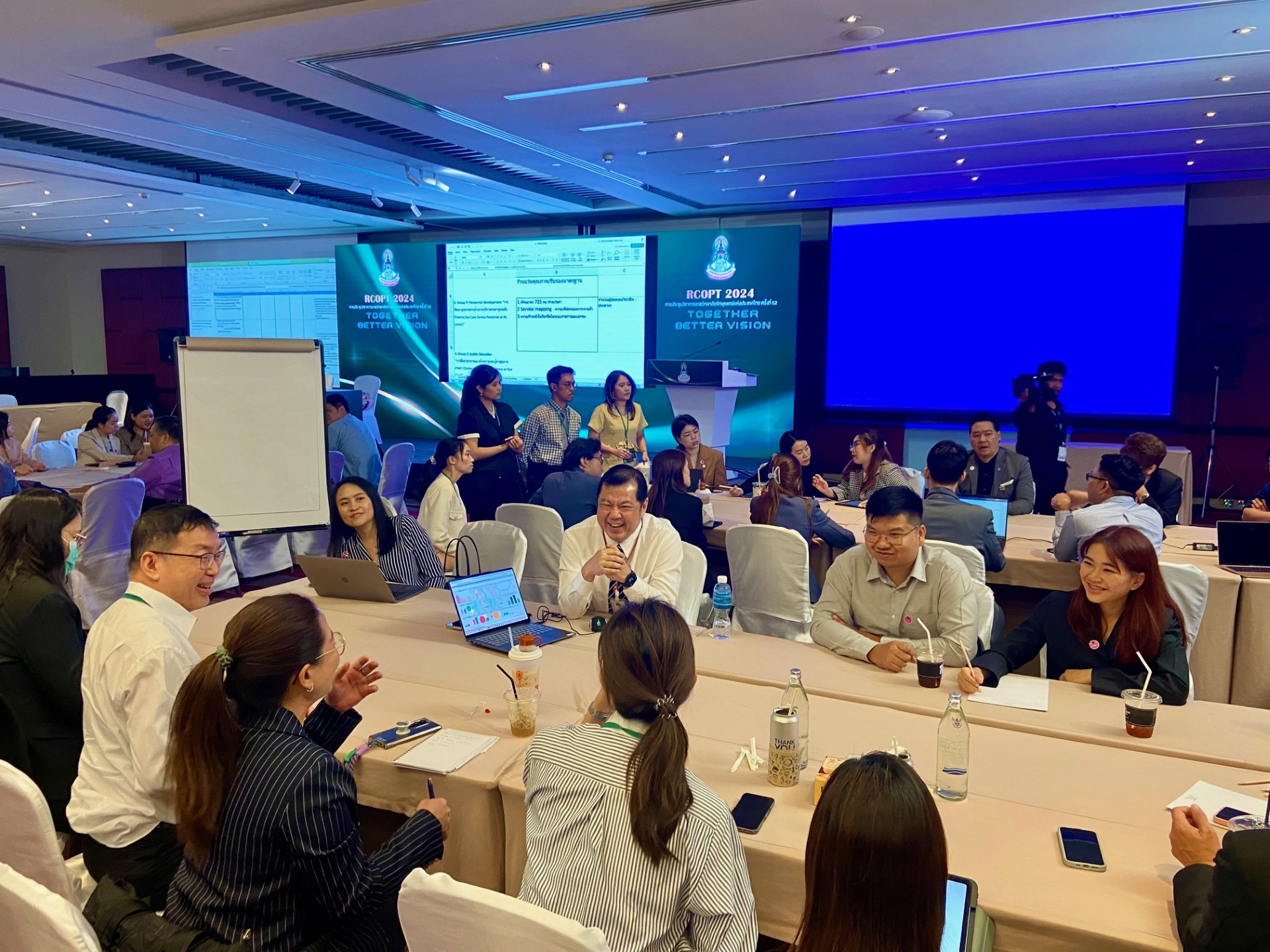Last November, Thailand took a major step forward to overhaul its national eye health. National leaders launched the “WHO SPECS 2030 initiative” to ensure that everyone who needs a refractive error intervention has access to quality, affordable and people-centred refractive error services. The event brought together leading doctors, decision-makers, teachers, and NGOs. Together, they forged a daring strategy to tackle uncorrected refractive errors by 2030.
Kicking off the event, Dr Warapat Wongsawad, the head of the Thai Public Health Ophthalmology Society, and Professor Dr Wanicha Chuenkongkaew, who leads the Royal College of Ophthalmologists of Thailand, provided opening remarks. Dr Andreas Mueller from WHO then delivered a keynote highlighting the importance of addressing refractive errors.
“Refractive error isn’t just about health—it creates societal and economic barriers. With the WHO SPECS 2030 initiative, nations get a worldwide strategy to eliminate these barriers by creating lasting, all-in-one eye care solutions,” Dr Mueller explained in his main speech.

Local progress and challenges
In the morning, Thailand’s current efforts took the spotlight. Projects like “Good Sight for Thai Children” and strategies from the Ministry of Public Health were on display. Presentations highlighted both progress and persistent challenges, from service access disparities to integration hurdles across public and private sectors.
Mr Udom Wongsing from the Office for Teacher and Education Institution Quality Development illustrated how supporting children with vision impairment in the classroom is essential to building more equitable and inclusive societies.
In the afternoon, everyone looked ahead to Thailand's upcoming strategy. They split into smaller teams to dive into the five SPECS 2030 pillars: Service design, Personnel development, public Education, Costing, Surveillance and research. Participants from a range of stakeholder groups put their heads together to discuss solid srategies to boost Thailand's eye health.
Each working group shared its insights during a debrief session, emphasizing integrated solutions such as training multidisciplinary visual care teams, educating the public on eye health literacy, and developing robust data systems to monitor outcomes. Dr Kulawan Rojananuangnit pointed out that the seminar laid the foundation to put Thailand at the forefront of bringing WHO SPECS 2030 to life with solid practical shifts.

Moving forward
As everything wrapped up, the participants agreed on one thing: turn the insights from the get-together into a plan for the nation. People from the health, education, private and policy circles in Thailand are banding together feeling hopeful that their homeland might just show others in the region how to tackle vision issues head-on.

Countries aim to hit the WHO's worldwide goal to lower wrong refractive errors by 40% by 2030. Thailand's initial push shows strong determination and true potential.
During the launch week, both the Royal College of Ophthalmologists of Thailand and the Optometry Association of Thailand extended an invitation to Dr Andreas Mueller from WHO to present on SPECS 2030. Both professional bodies expressed strong interest in collaborating together with WHO to advance the initiative.
Photo: WHO/ Andreas Mueller and Dr Warapat Wongsawat
